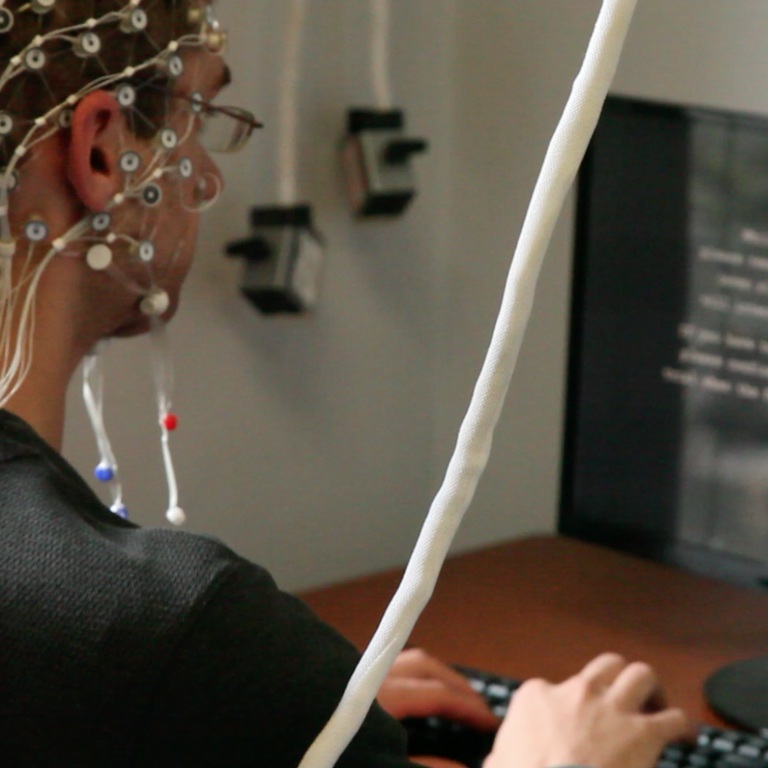There's an old joke in psychotherapy circles that goes like this: Nestled in the comfort of his therapist's office, a patient reveals that his tension and pain have grown to such a degree that he feels like jumping out the window. "Ah," says the kindly empathic therapist, "you feel so tense and are in such pain, that you feel like jumping out the window." "Yes!" the patient exclaims. "I don't know that I can stand it anymore!" Responding with a firm strength laced with compassion, the therapist says, "You don't know that you can stand it anymore." And so it goes, back and forth with the therapist repeating empathically what the patient has said so that the patient feels deeply understood. The "joke" ends when the patient gets up, goes over to the window and jumps. "Splat," says the therapist.
Clinical wisdom clearly is more than just empathic understanding.
When faced with the daunting task of responding to a patient or client, how does the treating clinician know how to proceed wisely? The roadmap is rarely clear, and the response choices are many. Staudinger has suggested that wisdom can be understood as deep insight and sound judgement in the fundamental issues of life, which are most often characterized by high uncertainty (Cassidy, 2017). This frame easily describes the psychotherapeutic encounter. But how do we use wisdom in a clinical setting?
What is Clinical Wisdom?
What is wisdom's manifestation in practice? While wisdom knows no allegiance to therapeutic school, Mark Twain's observation that "wisdom is the reward you get for a lifetime of listening when you would have rather talked," (Alford, 2009) surely suggests that psychoanalysts are well positioned to take the lead in the creation of such a definition. Numerous descriptions of the components of wisdom fit the practicing psychoanalyst. Sternberg (1990) has opined that wisdom requires a judicial thinking style: trying to understand why rather than judge. Baltes and Smith (2008) noted that observable indicators of wisdom include: 1. verbal behaviors such as insightful commentary about difficult and uncertain matters of life and 2. nonverbal behaviors that are associated with affect regulation and empathy in interpersonal contexts. Tiberius (2008) noted that wisdom requires the ability to critically reflect while maintaining attentional flexibility. At best, it echoes Staudinger and Baltes' (1996) notion of interactive minds, in which two persons think together about a difficult life problem and then reflect on the experience to help one person gain a sense of clarity and/or direction.
Research on Clinical Wisdom
Over a six-year period, I interviewed psychoanalysts between the ages of 73 and 102 who had been deemed wise by their peers. I wondered: When a life is spent listening to others, what does one learn about the human condition? In terms of how one approaches the work, what-if anything-changes over the course of a career? I also wanted to define clinical wisdom, a term that had not yet been defined in the literature. The interviews followed Cartwright's (2004) model for psychoanalytic research and yielded approximately 50 hours of interview material which was then analyzed (Baum-Baicker and Sisti, 2012b; Baum-Baicker, 2017b).
The Dynamic Integration Theory (DIT) of Labouvie-Vief (2008) was used as the basis upon which potential interview subjects were considered wise. DIT anchors wisdom in affect regulation, noting that affect regulation is made up of two independent emotion regulation strategies: affect optimization, which is a gravitation toward positive emotions, and cognitive-affective complexity which is a search for differentiation and objectivity. Labouvie-Vief terms those who have achieved this level of function as integrated.
A review and qualitative coding showed responses clustered into several categories, with overlap between categories around the following themes: 1. creative technique and pushing treatment limits 2. wise listening 3. humility 4. pearls of wisdom 5. an appeal to paradigm cases and 6. mentors and mentoring.
Based on the insights of the interviewees, a working definition of Clinical Wisdom was developed:
Rooted in pragmatism, clinical wisdom is the capacity to carefully balance an interplay of paradoxes in an open and nonjudgmental way; it is built upon kindness, humility, and a deep regard for the Other. (Baum-Baicker and Sisti, 2012a).
Four elements of clinical wisdom in psychotherapy/psychoanalysis emerged from the interview material:
1. Clinical wisdom is pragmatic
2. Clinical wisdom is balanced
3. Clinical wisdom is paradoxical
4. Clinical wisdom is a manner of being
This came as no surprise. As the father of psychoanalysis, Freud had suggested that clinicians listen in a balanced manner. He stressed that there were no hard and fast rules of practice, Rather his approach was meant as a suggestion of how to proceed. Freud was fascinated with the problem of fixity and fluidity, of block and of movement. He thus noted the paradox of the psyche, namely that it is blocked as it moves. This paradox was one among many noted by wisdom project interviewees. Examples of other paradoxical dimension of clinical wisdom include:
"We are separate, and we are attached."
"In good treatment we maintain the boundary and push the boundary."
"Psychotherapy requires acceptance of the patient while simultaneously working towards change."
"In psychotherapy you are-- and are not -- on safe ground."
"We help people feel safe and want to stay with us so that they can leave us."
"Relationships have permanence and impermanence."
"We are very much part of, and very much outside of, our patients' lives."
Concluding thoughts on Clinical Wisdom
Clinical Wisdom is the linchpin between theory and practice. It falls within the category of Aristotle's intellectual virtue, phronesis, and goes beyond it. Phronesis, as described in the Nicomachean Ethics, roughly translates to practical wisdom. In psychotherapy, it is a clinical approach not found in a manual, but rather one that incorporates and works with both implicit and explicit material within the context of a particular session with a particular patient-therapist dyad. This is Clinical Wisdom. It is unique to the dyad, yet incorporates shared features such as awareness of balance, the acceptance of paradox, and a clinical manner that maintains an openness and deep regard for the Other.
This artful approach to treatment was evident throughout the interviews, as respondents described features of wise listening in terms that were radically different from methods outlined in structured interview techniques. While they mentioned standard expected responses such as reflection and clarification, what was noteworthy was the organic and dynamic nature of their communication with their patients. As one participant said, "There's one fundamental rule of practice: The patient is more important than the rule." And it is here, that clinical wisdom is essential.
The responses from the wise elder clinicians both contributed to understanding what constitutes wisdom and also served as models for clinicians desiring to practice in a wiser fashion. It has been shown that the development of wisdom requires a variety of factors. Two crucial factors, for those so inclined in the development of wisdom, are motivation and life experience. Here, wise elder clinicians can shine a light on the path forward for those motivated to follow. Via supervisory experiences, personal analyses and/or psychotherapies, and reading examples of wise elders' cases and wisdom participant quotations (Baum-Baicker and Sisti, 2012; Baum-Baicker, C. 2018), wise clinical practice is both role modeled and directly experienced.
References
Alford, H. (2009). How to live: A search for wisdom from old people. New York: Twelve (Hachette Book Group).
Baltes, P.B. and Smith,J. (2008). The fascination of wisdom: It's nature, ontogeny, and function. Perspectives on Psychological Science 3 (1), 56-64.
Baum-Baicker, C. and Sisti, D. (2012a). Clinical wisdom in psychoanalysis and psychodynamic psychotherapy: A philosophical and qualitative analysis. The Journal of Clinical Ethics, Spring 2012, 23 (1), 13-27.
Baum-Baicker, C. and Sisti, D. (2012b). Clinical wisdom and evidenced-based medicine are (indeed) complimentary: A reply to Bursztajn and colleagues. The Journal of Clinical Ethics, Spring 2012, 23 (1), 37-40.
Baum-Baicker C. (2017a). Wise elder clinicians. Voices: The Art and Science of Psychotherapy, Winter 2017, 53 (3), 11-16.
Baum-Baicker, C. (2017b). Defining clinical wisdom. Journal for the Advancement of Scientific Psychoanalytic Empirical Evidence JASPER INTERNATIONAL, 2 (1), 71- 83.
Baum-Baicker, C. (2018). Defining clinical wisdom part II: Quotes, the qualitative underpinning of the research. Journal for the Advancement of Scientific Psychoanalytic Empirical Evidence JASPER INTERNATIONAL, 2 (2), in press.
Cartwright, D. (2004). The psychoanalytic research interview: Preliminary suggestions. Journal of the American Psychoanalytic Association, 52, 209-242.
Cassidy, C. (2017, January, 12). Wisdom Profile Series: Ursula M. Staudinger. EvidenceBasedWisdom.com. Retrieved from https://evidencebasedwisdom.com/wisdom-profiles-ursula-staudinger/
Labouvie-Vief, G. (2008). Dynamic integration theory: Emotion, cognition, and equilibrium in later life. In Bengston, F. Silverstein, M., Putney, N., and Gans, D. (Eds.) Handbook of theories of aging. Draft: January 29, 2008.
Staudinger, U.M. and Baltes, P.B. (1996). Interactive minds: A facilitative setting for wisdom-related performance? Journal of Personality and Social Psychology, 71, 746-762.
Sternberg, R. (1990). Wisdom and its relations to intelligence and creativity. In R. Sternberg (Ed.) Wisdom: Its nature, origins, and development. New York: Cambridge University Press. Tiberius, V. (2008). Tiberius, V. (2008). The reflective life: Living wisely with our limits. New York: Oxford University Press.
Cynthia Baum-Baicker, Ph.D. is a clinical psychologist in full-time private practice for individuals, couples, and families with offices in Philadelphia and Doylestown, PA. She is trained in psychoanalysis with American Academy of Psychoanalysis and is a graduate of the Washington Psychoanalytic Center's New Directions Program. Founder of the Wisdom Project for the American Psychological Association, Div 39, Baum-Baicker is also past-president of the section on couples and family therapy. She is the Board Chair of The Scattergood Foundation for Behavioral Health and sits on the Advisory Board of the Scattergood Program for the Applied Ethics of Behavioral Health at the University of Pennsylvania. In depth discussion of the six interview themes and the four clinical wisdom elements along with supporting interview material can be found in Baum-Baicker and Sisti (2012a) and Baum-Baicker (2018). A personal account of the interview process with a detailed discussion of interviewees' wisdom for everyday life including loss, relationship, and aging can be found in Baum-Baicker (2017a).

Cynthia Baum-Baicker, Ph.D.
Clinical Psychologist



